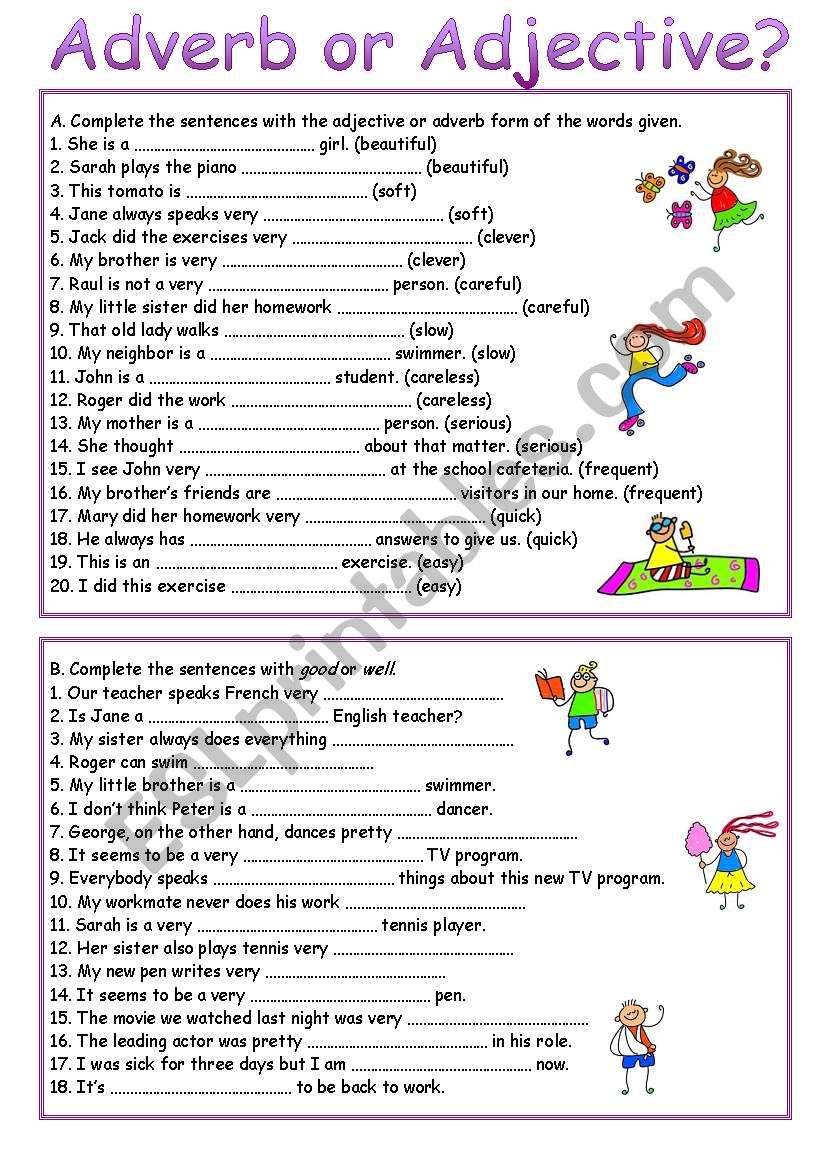

(Point 3) In real-life sentences, lots of adverbs are phrases or clauses (i.e., not single words).Īn adverb that modifies a verb usually tells you how, when, where, why, how often, or how much the action is performed.
fast, never, well, very, most, least, more, less, now, far, there. (Point 2) Although many adverbs end "-ly," lots do not. (In this example, "insanely" modifies the adjective "sad," "extremely" modifies the adverb "well," and "well" modifies the verb "sang.") She sang an insanely sad song extremely well. (Point 1) Adverbs modify verbs, but they can also modify adjectives and other adverbs. That is, of course, true, but adverbs do far more than that description suggests. When beginners first learn about adverbs, they are often told that adverbs end "-ly" and modify verbs. Note that only the adverbial clauses have a subject and a verb.) (In these examples, the subjects are blue, and the verbs are green. Here are some interactive examples to help explain the difference between single-word adverbs, adverbial phrases, and adverbial clauses. 
Read more about adverbial phrases and adverbial clauses.Īs we will cover later, adverbs can also modify adjectives and even other adverbs.

There are no single-word adverbs that tell us why.) (The highlighted text is an adverbial clause.) (The highlighted text is an adverbial phrase.) In the examples above, every adverb is a single word, but an adverb can be made up of more than one word.







 0 kommentar(er)
0 kommentar(er)
